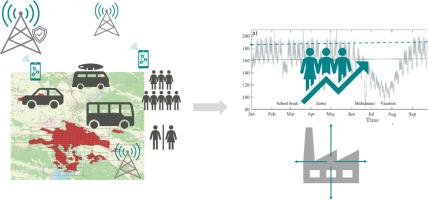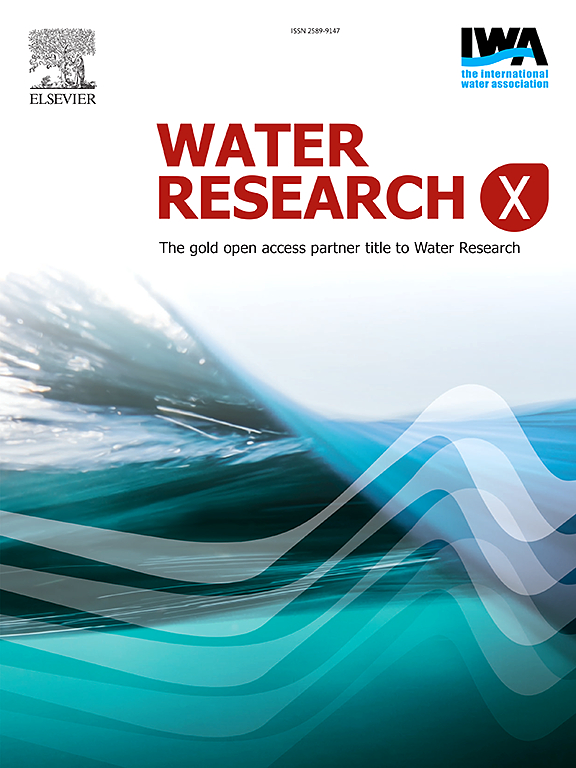基于模型的污水处理厂设计中减少不确定性的迁移率数据
IF 8.2
2区 环境科学与生态学
Q1 ENGINEERING, ENVIRONMENTAL
引用次数: 0
摘要
基于模型的设计是一种新兴的处理污水处理厂不确定动态负荷的工具。但我们对负荷驱动的种群动态的理解是有限的。因此,我们研究是否可以使用移动性数据(移动通信数据)来减少设计中的不确定性。来自瑞典乌普萨拉(Uppsala)的2019-2022年期间的流动数据清楚地量化了人口流动模式,这对于模拟季节性负荷变化等负荷情景非常有用,没有不规则进水抽样的数据缺口。此外,它们显示出与每日进水氮负荷的公平相关性(R2 = 0.49),这导致比假设静态种群(减少23%方差)更精确的人负荷估计。不幸的是,BOD负荷变化与种群变化的相关性很小(R2 = 0.21)。然而,基于迁移率数据的基于模型的反应器尺寸成功地将脱/硝化体积安全系数降低了5个百分点,这证明了它们在污水处理厂设计中的实际用途。本文章由计算机程序翻译,如有差异,请以英文原文为准。

Mobility data for reduced uncertainties in model-based WWTP design
Model-based design is an emerging tool for dealing with the uncertain dynamic loads entering wastewater treatment plants (WWTPs). But our understanding about the load-driving population-dynamics is limited. Therefore, we studied if mobility data (mobile telecommunications data) could be used to reduce uncertainties during design. Mobility data from Uppsala, Sweden between 2019–2022 clearly quantified population movement patterns that were useful for simulating load scenarios such as seasonal load-shifts, without data gaps from irregular influent sampling. Further, they showed fair correlations with the daily influent nitrogen load (R2 = 0.49), which resulted in a more precise person load estimate than assuming a static population (23 % reduced variance). Unfortunately, BOD load variations showed little correlation with the population variations (R2 = 0.21). Nevertheless, model-based reactor sizing based on mobility data successfully reduced the de-/nitrification volume safety factor with 5 percentage points, which demonstrates their practical usefulness for WWTP design.
求助全文
通过发布文献求助,成功后即可免费获取论文全文。
去求助
来源期刊

Water Research X
Environmental Science-Water Science and Technology
CiteScore
12.30
自引率
1.30%
发文量
19
期刊介绍:
Water Research X is a sister journal of Water Research, which follows a Gold Open Access model. It focuses on publishing concise, letter-style research papers, visionary perspectives and editorials, as well as mini-reviews on emerging topics. The Journal invites contributions from researchers worldwide on various aspects of the science and technology related to the human impact on the water cycle, water quality, and its global management.
 求助内容:
求助内容: 应助结果提醒方式:
应助结果提醒方式:


